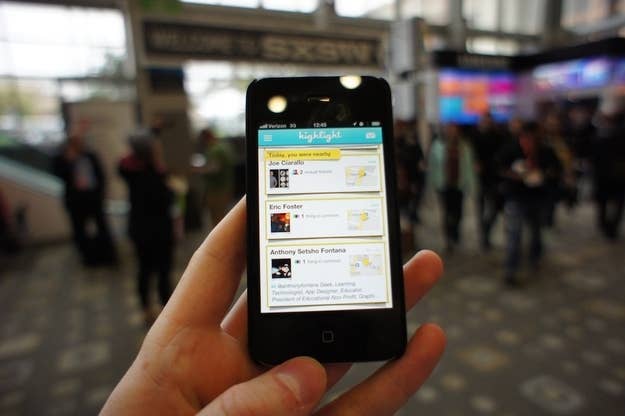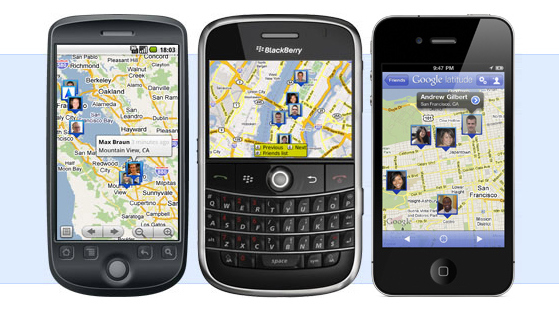
Every New Social Thing is "Creepy"
Here's some guy telling BusinessWeek that Twitter is creepy, back in 2007. Here is a VC who got creeped out by Foursquare. Here's a whole movie, which you probably saw, about how Facebook is creepy.
There is always at least a grain of truth in these arguments, but this stuff is only as creepy as the people who use it. Facebook is far more creepy if you're a bikini-picture-liking creep. Highlight — which alerts you to the friends or interests you share with people within about 200 feet of you — is creepy if all you do is use it to incessantly pitch people startups in VC pidgin English. I mean, speaking is creepy if you roll your eyes back into your head and make a hissing sound while the other person is talking. Creeps are creepy.
highlight is a creepy app #stalkerstatus
— Leesa Oberholzer (@LeesaOberholzer) March 9, 2012
These social discovery apps are creepy: techcocktail.com/highlight-banj… - it's too weird to go up to someone and identify them like that. Wrongness!
— Natalie Shaw (@natalie_shaw) March 10, 2012
It's a Really Good Icebreaker
Walking up to a stranger, or semi-stranger, is just hard enough that people don't do it that much. You need an icebreaker, or a common experience. For example: Hi, Jen? It's me, John! I know your roommate! So funny that we've been stuck in this elevator for 52 hours. I hope someone finds us! Or: Hi, David? It's me, John. We went to the same college in different years. So funny that we run into each other like this, head-on, in cars, on a busy highway!
Highlight is a way to talk but also a convenient thing to talk about, at east until we all get used to the concept. Talk about how creepy it is, whatever. I'll bet the first Grindr users talked a lot about how weird Grindr is. Now they're all humping. What are you doing? Reading a blog.
Presenting @highlight Lite, in battery-saving SXSW Tweet form: ALL of your friends are three blocks away.
— Morgan Missen (@mm) March 10, 2012
It's Not Just Some SXSW Thing (It Actually Kinda Sucks Here)
Highlight is at its coolest when you're walking around a city. Actually, this might be its biggest weakness—like Foursquare, it only works when you've got a dense population of people like you. But not too dense.
I'm sitting in the convention center at SXSW and Highlight is doing is telling me that there are lots of people in the convention center. We all knows this! We're here. And we're here specifically to talk to other people about tech stuff, so the "shared interest" thing falls apart a little too. I mean it still works; it's just one of few social apps that actually works better away from SXSW. It's certainly not one of those app that only works in the Austin hype bubble.

It's an Obviously Good Idea, Even If It Isn't Original
Being able to see who's near you and talk to them is Sci-Fi 101. Of course this will be a thing we can all do soon, whether or not Highlight has any part of it. (It very well won't!)
The only reason something like this isn't already everywhere is because the old versions sucked: Google Latitude wasn't connected to a real social network and didn't really have a decent chat function; Loopt came out before location apps could run in the background on iOS. Highlight and Glancee, the other Highlight, had good timing and apps that work. The idea was certified, Grade-A "Good" before they actually built something out of it.
Wow Highlight is creepy good.
— Saumil Mehta (@saumil) March 9, 2012
It's Totally Inevitable
Not Highlight specifically, just the location thing. Whatever happens here over the next few days, or in NY and SF over the next few months, everyone seems to realize that this long-overdue passive location thing is ready, now. It has been anointed. Congratulations, long-overdue passive location thing!
Here's what happens next.
1. Highlight catches on big and everyone uses it (which it probably won't)
2. Highlight gets bought by Google or Facebook or even Foursquare (probably Facebook)
3. Facebook, or someone, just straight rips off the concept.
I imagine this going something like how GroupMe did: It was huge at SXSW, then, instead of blowing up, it got baked into the next iPhone under a totally different name. It told Apple that it was time to add free internet text and group messaging to its phones, so that's what Apple did.
